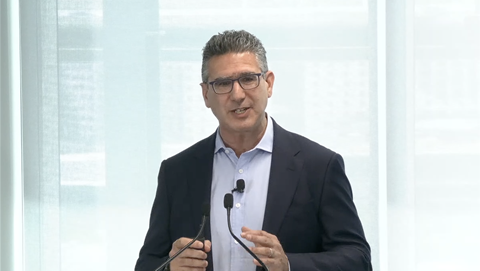The Government is already applauding itself over ICT savings in excess of $2 billion that it expects to make over the seven years to 2015/16.

A 12-page report (pdf) by Finance Minister Penny Wong attributes the lion's share of the savings — about $1.8 billion — to bearing down on the “business as usual" cost of ICT operations, an initiative that fell out of the 2008 Gershon report.
“A series of annual funding reductions for each agency was implemented after a 2008 review by Sir Peter Gershon found that agencies could achieve cost reductions in the order of 15 percent from their annual ICT BAU expenditure through better planning and more efficient investment practices," the report noted.
Business as usual savings are expected to peak in 2013/14 at just over $350 million, continuing at that level for the following two years.
The remaining $200 million in savings comes from a series of smaller-scale projects.
A 2009 Microsoft volume sourcing agreement is expected to net $91.1 million in savings between 2008/9 and 2012/13.
Whole-of-government arrangements for procuring desktop hardware "and associated services" is expected to generate savings of $16.3 million between 2010 and 2013/14.
Similar arrangements for mobile telephony and internet services are expected to net $50 million in savings between 2012/13 and 2015/16.
Whole-of-government panels for major office machines like photocopiers and printers will save $19.4 million over the six years to 2015/16.
And a program to reduce the number of internet gateways run by Federal agencies is expected to save $25.4 million between now and 2015/16 — and $8 million a year thereafter.
The report also reiterates the oft quoted figure of “avoiding future costs” of the order of $1 billion from data centre consolidation, though this is not included in the direct $2 billion savings figure.
The report adds that the Government recognises that greater efficiency in the public service is more than cost cutting and offers the example of the new parliamentary workflow system.
The 2012/13 Budget included an investment of $10 million over five years for a new electronic parliamentary workflow system, which is expected to deliver savings of $30 million over 10 years.
The report promises further public sector-wide ICT strategies will continue to target efficiencies through adoption of new technologies such as cloud computing, standardisation of core IT systems and greater re-use of existing capability (rather than continually “re-inventing the wheel”).











 iTnews Executive Retreat - Security Leaders Edition
iTnews Executive Retreat - Security Leaders Edition
 iTnews Cloud Covered Breakfast Summit
iTnews Cloud Covered Breakfast Summit
 Melbourne Cloud & Datacenter Convention 2026
Melbourne Cloud & Datacenter Convention 2026
 The 2026 iAwards
The 2026 iAwards












_(1).jpg&h=140&w=231&c=1&s=0)



